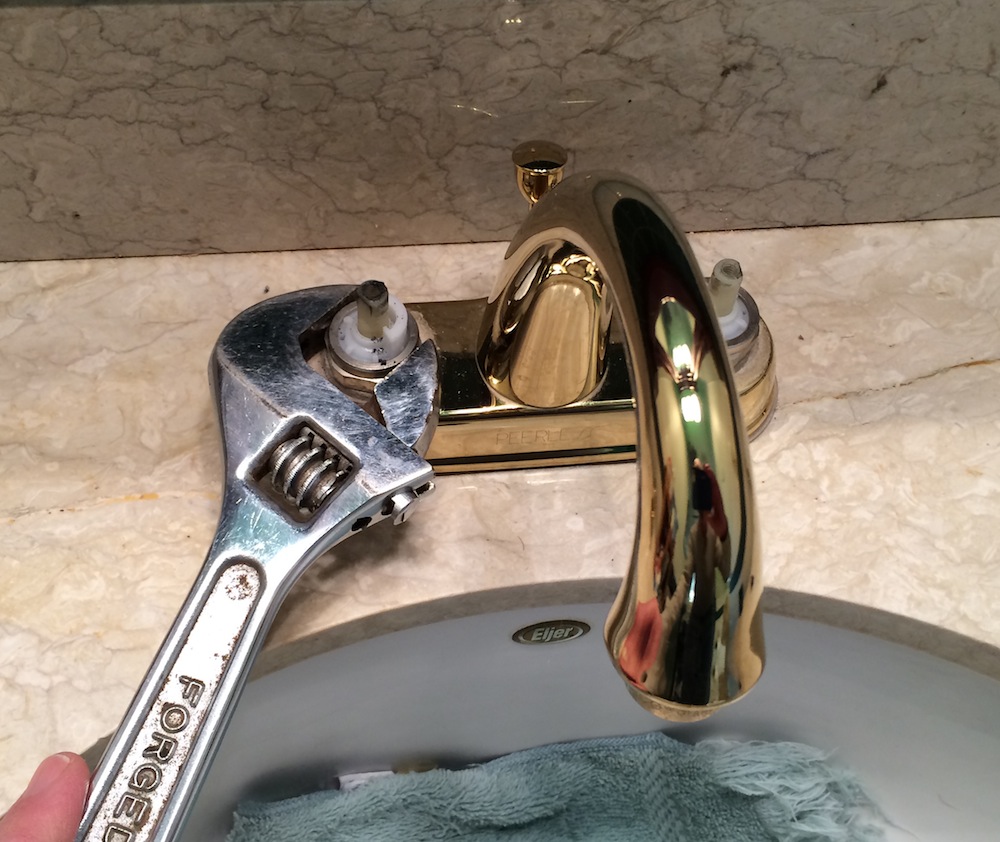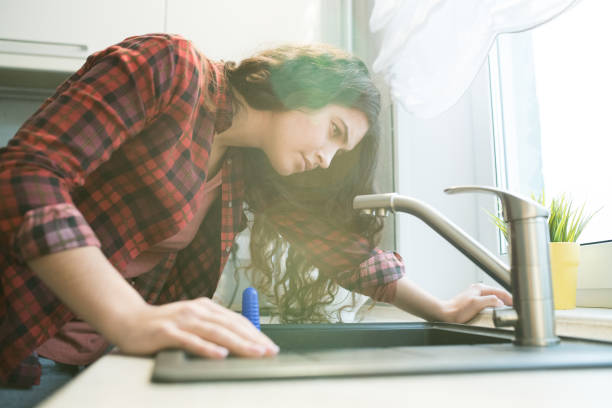Are you currently trying to find advice on How to Fix a Dripping or Leaky Faucet ?

Trickling taps could seem like a minor inconvenience, but their impact goes beyond just the nuisance of the noise. From drainage to incurring unnecessary financial costs and wellness threats, neglecting a leaking faucet can lead to various effects. In this article, we'll look into why it's vital to address this common house problem promptly and properly.
Waste of Water
Environmental Effect
Dripping faucets add considerably to water waste. According to the Epa (EPA), a single faucet leaking at one drip per secondly can waste more than 3,000 gallons of water each year. This not only stress water sources yet also impacts ecological communities and wildlife depending on them.
Financial Costs
Boosted Water Expenses
Past the ecological influence, trickling taps can blow up water costs considerably. The gathered wastefulness with time equates into higher utility expenditures, which can have been prevented with timely repair work.
Potential Home Damage
Moreover, long term dripping can bring about harm to fixtures and surface areas surrounding the tap. Water build-up can cause discoloration, corrosion, and also structural problems if left neglected, causing extra repair prices.
Health and wellness Concerns
Mold And Mildew and Mildew Development
The constant visibility of wetness from a trickling faucet develops an optimal environment for mold and mold growth. These fungis not just compromise interior air top quality but likewise pose health and wellness threats, specifically for individuals with breathing problems or allergic reactions.
Waterborne Diseases
Stagnant water in leaking taps can come to be a breeding ground for bacteria and other microorganisms, boosting the threat of waterborne illness. Contaminants such as Legionella microorganisms flourish in stagnant water, potentially leading to major health problems when consumed or inhaled.
DIY vs. Expert Repair work
Benefits and drawbacks of DIY Repair
While some might try to repair a dripping tap themselves, do it yourself repair work come with their very own set of challenges. Without correct understanding and tools, DIY efforts can worsen the issue or cause incomplete fixings, extending the trouble.
Benefits of Working With an Expert Plumber
Working with a professional plumber makes certain that the underlying reason for the dripping faucet is resolved efficiently. Plumbers possess the experience and equipment to identify and repair tap concerns successfully, saving time and decreasing the threat of further damage.
Step-by-Step Guide to Repairing a Dripping Faucet
Tools Needed
Before attempting to repair a leaking faucet, gather the required devices, consisting of an adjustable wrench, screwdrivers, replacement parts (such as washers or cartridges), and plumber's tape.
Usual Tap Issues and Their Solutions
Determine the type of faucet and the details concern triggering the drip. Usual issues include damaged washing machines, corroded shutoff seats, or malfunctioning O-rings. Refer to supplier directions or online tutorials for detailed support on repairs.
Safety nets
Normal Maintenance Tips
To stop leaking taps, carry out regular maintenance such as cleaning up aerators, inspecting for leaks, and replacing worn-out parts promptly. In addition, think about setting up water-saving devices or updating to extra effective components.
Relevance of Prompt Repairs
Dealing with dripping taps as quickly as they're observed stops further water wastage and possible damage, inevitably saving both water and money in the future.
Effect On Residential Property Value
Assumption of Well-Maintained Residential Property
Preserving a home in good condition, consisting of dealing with upkeep issues like dripping taps, boosts its perceived value and worth among potential customers or occupants.
Influence on Resale Worth
Qualities with well-kept plumbing components, including taps, command higher resale worths in the real estate market. Attending to dripping taps can add to a positive impact during building evaluations and arrangements.
Environmental Obligation
Specific Contribution to Preservation
Taking duty for repairing leaking taps straightens with broader efforts toward water preservation and ecological sustainability. Every person's activities jointly make a considerable influence on maintaining priceless sources.
Lasting Living Practices
By focusing on punctual fixings and taking on water-saving behaviors, people add to sustainable living methods that benefit both present and future generations.
Final thought
Dealing with a dripping tap surpasses simple benefit; it's an important action towards conserving water, reducing economic expenses, and safeguarding wellness and residential property. Whether via do it yourself repairs or professional aid, doing something about it to repair trickling taps is a small yet impactful means to promote accountable stewardship of resources and contribute to a much healthier, more lasting future.
Why Are My Faucets Dripping (And Can I Fix it Myself)?
Causes of a Dripping or Leaking Faucet
Whether you’re hearing drops of water falling and hitting a sink, or noticing water ooze out from the base of the spout, you shouldn’t ignore a dripping or leaking faucet. And, the good news is, sometimes you can fix the problem yourself.
In this article, we’ll review a few common causes of dripping and leaky. We’ll also walk you through some basic ways to find the problem and handle it without calling anyone — and let you know when to call in a pro.
But, no matter what the cause, or whether you can handle it on your own, the sooner you address it, the better.
Each drip may be a tiny amount of water. But, they all add up quickly. According to the U.S. Geological Survey, one faucet losing one drop every 20 seconds — five a minute — wastes around a liter of water every day, and 173 gallons a year.
Add in more than one in your house, and it’s a lot of water to waste. So, we’ll help you get to the bottom of things quickly.
Four Reasons Your Faucet May Be Dripping
Aerator is Damaged or Unseated Valve Seat is Corroded O Ring is Loose or Worn Out Part of the Assembly is Loose Aerator is Damaged or Unseated
If you unscrew the end of your faucet, you’ll find the aerator. It’s the little stem piece with a screen on it that shuts off the water circulation.
If it’s damaged, or if it’s not sitting right, it will allow water to pass through.
Valve Seat is Corroded
Next is the valve seat, which is connected to the washer. If the washer wasn’t in place correctly, then it could have ground against the seat. Over time, this damages the valve seat.
The problem could also be corrosion: Over time, the part has worn out, and it’s now allowing water to pass through.
O Ring is Loose or Worn Out
Since the o ring is only a small rubber gasket, it’s a common reason why the faucet is dripping. You’ll find it at the base of the faucet, and it’s there to keep water from coming out where it’s not supposed to.
However, it’s common for the o ring to wear out over time. When it does, you’ll notice a drip.
Part of the Assembly is Loose
So far, we’ve looked at a few small, specific parts. But, the problem could be anywhere in the assembly if something’s out of place.
Even if a part isn’t damaged, over time, it may have become loose or dislodged. It could be the parts we mentioned, or the aerator at the tip of the faucet, the stem itself,
Can I Fix a Leaky Faucet Myself?
Depending on the problem, and how handy you are, there’s a chance you can fix a leaky faucet without calling a professional. But, you do run the risk of making the problem worse.
If it’s a small drip, you can certainly try a few troubleshooting tactics. We’ll walk you through them in a moment.
But, no matter what, your first step should be shutting off the water coming into the faucet. You should find a shutoff valve under the sink on the pipes leading to it. Turn each one clockwise until they close tightly.
Next, make sure you have the right tools for whatever you’re attempting. It’s tempting to make do with what you have. But, you need the right ones for a reason: You’re often dealing with small parts that can break if you handle them carelessly.
If you’re feeling confident, here are some places to start.
Items Near the Tip of the Faucet
A few of the parts we mentioned — particularly the valve seat and washer — are located at the tip of the faucet where the water comes out. They’re easy to access, making it a good place to start.
Check the O Ring
To check the o ring, you’ll need to take off the spout at the base. It’s easiest on kitchen sinks with long spouts, versus the smaller, bulkier base on most bathroom sinks.
Either way, this can be tricky, so do it carefully and don’t force anything. If it’s not coming right off, you’re much better off calling in a pro than possibly breaking something.
For a kitchen sink, there’s usually a nut or coupling assembly at the base of the spout. These often slide off easily without using any tools.
Once you’ve disassembled those parts, gently but forcefully twist off the spout.
Then, you can see the o rings. There should be two of the rubber gaskets on the base. If they look worn or damaged, replace them, and see if that solves the problem.

We had been shown that report on What Causes Leaky Faucets & How To Fix Them from a good friend on a different web blog. Please set aside a second to share this article if you appreciated it. We treasure reading our article about Why Are My Faucets Dripping (And Can I Fix It Myself)?.